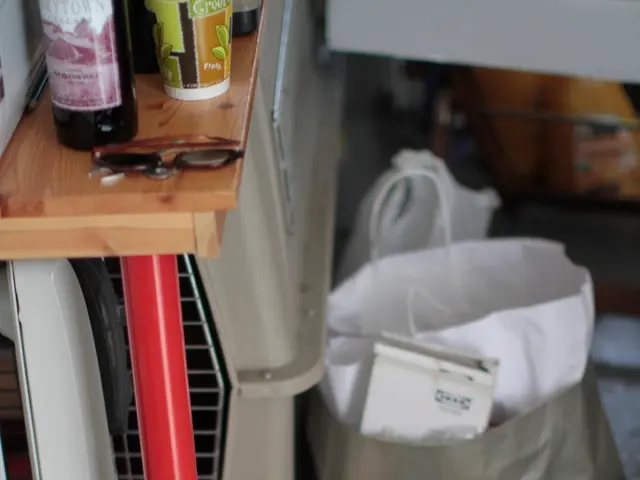Trump's Crusade for Affordable Meds: The EU on the Hot Seat
US President Donald Trump advocates for reduced medicine costs domestically, exerting pressure on the European Union.
Share on Facebook ♦ Twitter ♦ WhatsApp ♦ Email ♦ Print ♦ Link ♦ Copy
U.S. President Donald Trump, alias 'Big Pill Popper Slasher,' is on a mission to slash high prescription drug prices within the U.S., with a keen focus on Europe. "We're bankrolling other nations' healthcare," Trump stated while inking an executive order, nicknamed "The Great American Drug Price Slasher Act."
Trump's beef isn't solely with medicine makers – it's mostly with foreign healthcare systems, particularly Europe. He's accused America's patients of acting as financial backers to foreign healthcare systems, like the socialist one in Deutschland. The European Union was specifically called out as a tough nut to crunch, supposedly giving China a run for its diplomatic worth.
The new plan targets pharmaceutical companies and foreign governments. Trump was quite straightforward about it: "If they fake us like they're playing hard to get, we'll see precious few more cars waltzing in from the EU."
Time will tell if his moves actually knock down prices. Political and legal resistance is brewing, just like back in Trump's first term when he tried to tame drug costs but ended up empty-handed.
Tearing Through the Enrichment Data
- Behind the Curtains: Trump's executive order is dubbed the "Most-Favored-Nation Prescription Drug Price Courtside," aiming to align U.S. drug prices with those in low-cost countries, commonly found in Europe.
- Action Plan: The administration has their sights set on specific drugs listed in the Inflation Reduction Act negotiations, seeking deeper price reductions.
- Legal Battlezone: The pharmaceutical industry might retaliate with litigation to counter the proposed measures.
- EU's Response: So far, the EU's response has remained behind closed doors. However, they have their own mechanisms for drug price regulation, such as negotiating deals with pharmaceutical companies to maintain fair prices within their market.
- Next Steps: The Trump administration anticipates voluntary price negotiations with pharmaceutical companies, but this could spark conflict if companies push back. They also compare the MFN approach favorably to IRA negotiations, banking on MFN to deliver better price reductions.
Overall, Trump's plan to tackle high drug prices involves leveraging international pricing structures, with the EU stuck in the crossfire. The EU will likely defend its own pricing mechanisms and maintain a competitive pharmaceutical market.
- The Trump administration's executive order, known as the "Most-Favored-Nation Prescription Drug Price Courtside," aims to align U.S. drug prices with those in low-cost countries, specifically targeting Europe as part of its strategy against high prescription drug prices.
- In the health-and-wellness sphere, the administration has identified specific drugs listed in the Inflation Reduction Act negotiations as targets for deeper price reductions, mirroring the science and policy-and-legislation approach taken by Trump's crusade.
- As politics unfold, the pharmaceutical industry in Europe may respond with policy-and-legislation measures, potentially utilizing legislation and litigation to counter the proposed price reductions, while the EU maintains its own regulatory policies to maintain fair prices within its health-and-wellness market.








